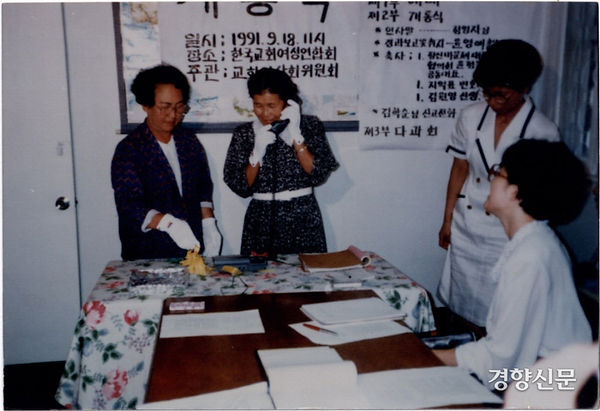Kim Hak Sun
김학순

Kim Hak Sun was born in 1924 in Jilin, China, after her parents emigrated from Korea during Japanese colonial rule. After her father’s death, Hak Sun’s mother returned to Korea and remarried. However, when she had a hard time adjusting to her remarried mother and new family, Hak Sun was sent to live with a foster family. Hak Sun’s foster father took her to Beijing to find a job for her. Upon arrival, Hak Sun was kidnapped by Japanese soldiers and taken to a “comfort station,” where she and other teenage girls were raped by Japanese men. After four months, she was able to escape due to the help of a Korean man who had entered one of the “comfort stations.” She eventually married the man and had a son and daughter. Her husband, who trafficked opium across China, often called her a “dirty military prostitute” whenever he was drunk or upset. After the end of Japanese rule, Kim Hak Sun eventually returned to Seoul. Soon after, Hak Sun lost her children and husband due to illnesses. She drifted across Seoul, working odd jobs and living in slums.
After 50 years of silence, on August 14, 1991, Kim Hak Sun officially testified in front of the nation. Kim Hak Sun became the first Comfort Woman to publicly describe the horrific conditions during the Pacific War. After Hak Sun’s groundbreaking testimony, other victims began to come forward. In total, around 200 victims form the Philippines, Singapore, Taiwan, China, Korea, and the Netherlands came forward to officially register as a Comfort Woman. In response to this sudden increase in international attention, the Japanese government issued the Kono Statement, the first official government document to recognize the Japanese government’s role in the creation of the “comfort stations” and the use of “coercive methods” to recruit women. The year after Hak Sun’s historic testimony, protesters began to gather every Wednesday in front of the Japanese embassy to demand reparations and an official apology. To this day, the Wednesday Demonstrations continue to demand justice for the Comfort Women.
Kim Hak Sun was also part of a lawsuit filed at the Tokyo District Court in 1991, which required legal redress through reparations and an apology. She regularly spoke at rallies in front of the Japanese Embassy of Korea during the Wednesday Demonstrations. Despite her illness, she gave her final interview in which she continued to demand a proper apology from the highest Japanese official. On December 16, 1997, she passed away from lung disease. August 14 is officially the day of the Comfort Women, and commemorates the historic date when Kim Hak Sun first spoke up for thousands of young girls who had perished.



